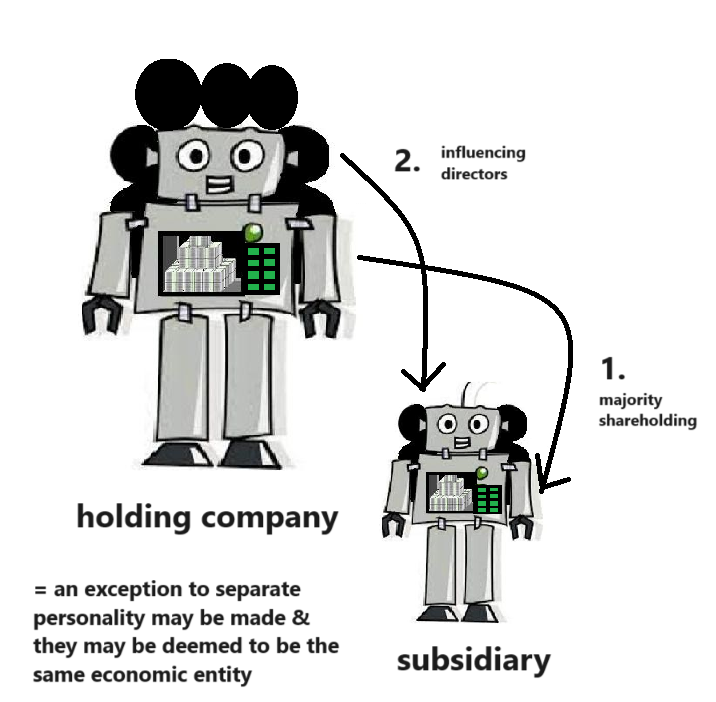DHN Food Distributors Ltd v Tower Hamlets London Borough Council [1976] 1 WLR 852
Citation:DHN Food Distributors Ltd v Tower Hamlets London Borough Council [1976] 1 WLR 852
Rule of thumb:Can a holding company be liable for the actions of a subsidiary? If they are deemed to be the same economic entity, with extremely close ties, then, yes, however, if the holding company retains its distance & does not interfere in operations, then no, it is deemed to be a separate entity.
Judgment:
The facts of this were that DHN operated a grocery cash and carry business in the retail sector. DHN owned 100% of the shares in a company called Bronze. Bronze owned the land where DHN were carrying on their cash and carry business, and this land was the only asset which DHN had. All of the directors in Bronze were the same as DHN as well. The Tower Hamlets Council desired to buy the premises where DHN were operating so that a Government project could be carried out. Bronze were paid 1.5 times the value of the land for it to be acquired. However, as part of the general compensation scheme under compulsory purchase, if the land that was purchased had a business going on there, and the business owned the land rather than rented it, then the business would be due compensation for loss of profits in the time taken to relocate and attract new customers. Tower Hamlets Council refused to pay out to DHN because they stated that they did not own the land where their business was carried out, rather that it was rented, meaning that they did not qualify for loss of profits in relocating. DHN argued that they did effectively own the land as their group of companies was all part of the same economic entity where the different companies used were just to make accounting easier and business operations more efficient, but they were all the same entity. The Court accepted that where a group of companies is being used for this purpose, to make things more efficient, rather than using the investment or holding model, then separate personality did not apply. DHN were awarded the loss of profits by the Court.
Ratio-decidendi:
‘These subsidiaries are bound hand and foot to the parent company and must do just what the parent company says… This group is virtually the same as a partnership in which all the three companies are partners. They should not be treated separately so as to be defeated on a technical point’, Lord Denning at 860

Warning: This is not professional legal advice. This is not professional legal education advice. Please obtain professional guidance before embarking on any legal course of action. This is just an interpretation of a Judgment by persons of legal insight & varying levels of legal specialism, experience & expertise. Please read the Judgment yourself and form your own interpretation of it with professional assistance.

